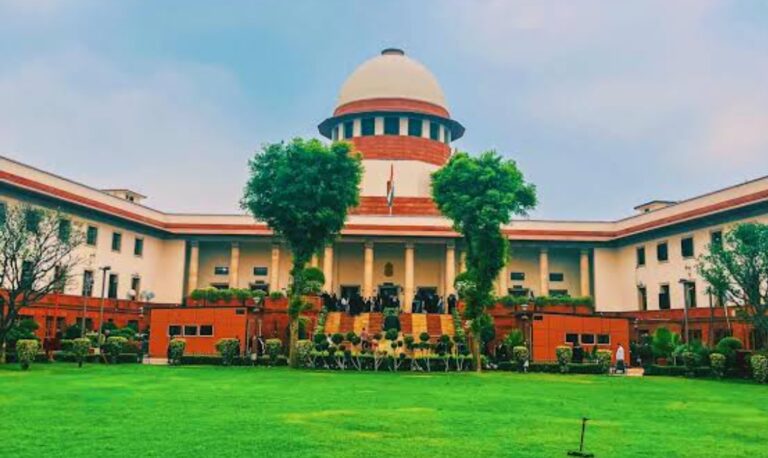A significant tax dispute with wide implications for India’s aviation and maintenance industries has reached the Supreme Court. The case revolves around whether IGST can be levied on aircraft parts and engines sent abroad for repair and subsequently re-imported. The Customs Department’s appeal against a Delhi High Court judgment in favour of InterGlobe Aviation Ltd. (IndiGo) has prompted the Supreme Court to issue notice, setting the stage for a crucial interpretation of “import of goods” versus “import of services” under the GST framework. The outcome could redefine how re-imports after overseas repairs are taxed, impacting not only airlines but several sectors engaged in cross-border maintenance and refurbishment activities.
Case Details:
Customs Department v. InterGlobe Aviation Ltd. (IndiGo) | Notice issued: 7–8 October 2025
Bench: Justices B.V. Nagarathna & R. Mahadevan
Background
A key tax dispute concerning India’s aviation industry has reached the Supreme Court. The Customs Department has challenged a Delhi High Court judgment that struck down the levy of Integrated Goods & Services Tax (IGST) on the re-import of aircraft parts and engines sent abroad for repairs by InterGlobe Aviation Ltd. (operator of IndiGo).
The crux of the issue lies in determining the correct nature of such transactions — are they a re-import of goods, attracting IGST under customs notifications, or an import of services (i.e., repair services performed abroad), taxed differently under the IGST Act?
The Dispute
IndiGo had exported certain aircraft engines and components to overseas facilities for maintenance and repair. After the repairs, these items were brought back (re-imported) into India.
The Customs Department sought to levy IGST and cess on the re-import, relying on a 2021 CBIC notification prescribing tax treatment for goods returned after repairs.
However, in March 2025, the Delhi High Court ruled in favour of IndiGo, holding that:
- The re-import of repaired goods is not a fresh import of goods but rather represents the import of a repair service performed abroad.
- The 2021 CBIC notification, insofar as it imposed IGST on such re-imports, was unconstitutional and beyond statutory authority.
The Court further observed that the notification effectively expanded the tax net without clear legislative backing, particularly in the absence of any change to Section 5(1) of the IGST Act.
Supreme Court Intervention
On 7–8 October 2025, the Supreme Court issued notice to IndiGo, admitting the Customs Department’s appeal against the Delhi High Court ruling.
While no stay has been granted yet, the Court’s decision to take up the matter underscores its national significance, especially for the aviation and maintenance, repair, and overhaul (MRO) sectors.
Key Legal Questions
- Validity of the 2021 CBIC Notification:
Whether the notification imposing IGST on re-import of goods repaired abroad is retrospective or ultra vires the parent statute. - Nature of Re-Import Transactions:
Should the return of repaired goods be treated as:- A re-import of goods, attracting IGST and cess under the Customs Tariff framework, or
- An import of services, taxable under the IGST Act as a cross-border repair service?
- Impact on Section 5(1) of IGST Act:
Does the levy align with the scope of “supply” and “import of services” as defined under the GST regime?
Wider Implications
The outcome of this case is likely to have a ripple effect across industries that send goods abroad for repairs or refurbishment — not just aviation, but also shipping, heavy equipment, and energy sectors.
For airlines and MRO operators, the ruling will directly influence:
- The applicability of IGST/cess on repaired components re-imported into India.
- The eligibility for input tax credits or refunds.
- The structuring and documentation of overseas repair arrangements going forward.
Tax professionals note that the issue highlights the tension between legislative intent and administrative expansion through notifications — a recurring theme in indirect tax litigation.
Conclusion
Although the Supreme Court has only issued notice at this stage, its intervention signals that the taxability of re-imports post-repair is a substantial question of law with far-reaching commercial implications.
The aviation sector, in particular, will be watching closely as the Court determines whether such transactions fall within the realm of goods or services — a distinction that could redefine how India’s import-repair ecosystem is taxed under GST.
